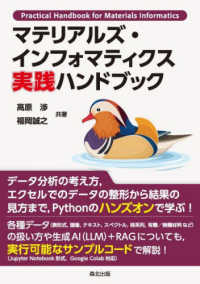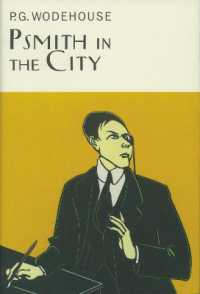Full Description
In the late 1980s positive interaction between home and school in education was receiving attention from politicians, parents and teachers. It was thought that by listening to parents, teachers might gain insight into the ways in which they could work more effectively with children and their families.
Originally published in 1988, this book was of great practical value. It draws upon the authors' work over the previous decade to explore the links between listening to the parental perspective on a child's schooling and the development of more effective home/school practice. It describes the scene at the time, the philosophy and method for effective listening, the development of familiarity and understanding with parents, strategies for encouraging a home/school programme and the development of effective practice. Included are accounts by parents with widely differing backgrounds and experiences on their role as educators and their dealings with their children's schools. The book concludes with a discussion of the important issues in home/school interaction and identification of the areas where further development is needed. Still relevant today, this book can be read in its historical context.
Contents
Preface. Introduction. Part One: Listening to Parents: The Background 1. The Current Scene 2. The Examination of Home/School Issues 3. Listening to Parents - as a Philosophy and a Way of Working Part Two: Listening to Parents: Their Perspective and Experience 4. The Making of Home/School Relations 5. The Development of Familiarity and Understanding 6. Defining the Boundaries 7. Parents as Education Part Three: Working with Parents: The Development of Effective Practice 8. Strategies for Developing a Home/School Programme 9. Improving Communication and Contact Part Four: Listening to Parents: Some Wider Concerns 10. Implications for Policy, Training and Further Development. Some Suggestions for Further Reading.








